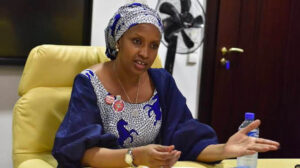Health Practitioners: How to solve brain drain, by experts

Digitisation of healthcare can solve the brain drain and doctor-to-patient ratio problems, experts have said.

They noted with deployment of tools, such as healthcare apps, one doctor can remotely attend to many patients without visiting hospitals.
The experts spoke in Lagos during launch of a healthcare app, Rigour+, by Afri-Health.
Rigour+ offers features enableing users to book appointments with doctors and others, order medication and access medical records.
Afri-Health’s Founder, Linda Obi, said Rigour+ app is part of their effort to improve healthcare access and outcomes.
“Take a look at Internet penetration and smartphone uptake in Africa. It makes sense to begin to build digital products that make sense,” she said.
During the launch, Obi and other healthcare professionals, fintech and logistics experts, in a panel discussion, tackled issues on digitisation and democratisation of healthcare across Africa for accessible and affordable healthcare services.

“Digital products will play a role in digitalisation coming to Africa,” she said.
She cited electronic medical records as one area where tech can solve health problems.
“It is a digital product built on the blockchain. Prior to this if you go to a hospital and are to transition from hospital one to hospital two, we will have to manually transfer your files but if you have a product addressing this problem, it will make it easier,” Obi said.
She called for public-private collaboration to achieve digitalised healthcare.
“We are at upwards of 50 per cent (Internet penetration) and it’s going to increase in the next five years… we should have conversations around collaborating to scale,” she said.
Obi noted for the last two months, they had been doing outreach in underserved areas by educating people on use of tech product to derive scale.
The Vice President, Chikezie Jude, said Nigeria’s healthcare ecosystem is faced with problems of brain drain and ratio of doctor to patient.
“Only digitisation can solve the problem of doctor-to-patient ratio. Digitisation will make it possible for doctor to speak with many patients and they don’t need to walk out of their homes to visit hospital.
“Our brand promises democratising access to premium healthcare, which is accessible and affordable,” he said.

Jude noted most problems in healthcare delivery centred on price irregularity because of fragmentation in the ecosystem, but that digitisation will bring a level-playing field to price regularity.
“We are providing a system where doctors can provide virtual consultations at affordable prices. We have broken it down to personal subscription plans to be discounted for patients.”
“When I walk into a hospital, I will have to pay for a hospital card but with Rigour+, I don’t have to pay but go directly to a doctor and book for a consultation. Affordability is a key factor we put into consideration when building the solution,” he added.
Also speaking, Medical Doctor and Health Educationist, Chinonso Egemba, identified technology as a key factor in the development of the country’s healthcare sector, adding that it democratises healthcare.
“All you need is just to have access to a smartphone and you will be able to access healthcare,” he said.
Asked how the less privileged will be able to access healthcare without data, he said one cannot separate technology from data adding that the team behind Rigour+ is also collecting data and making sure that they are compressed in one place.
“For a very long time as a nation, we have been making decisions when it comes to healthcare without data but with the advent of technology and these tools we cannot just but access these data and process them.”
The Nation











